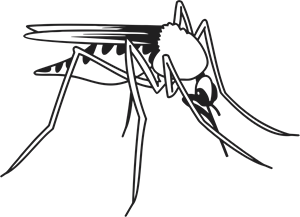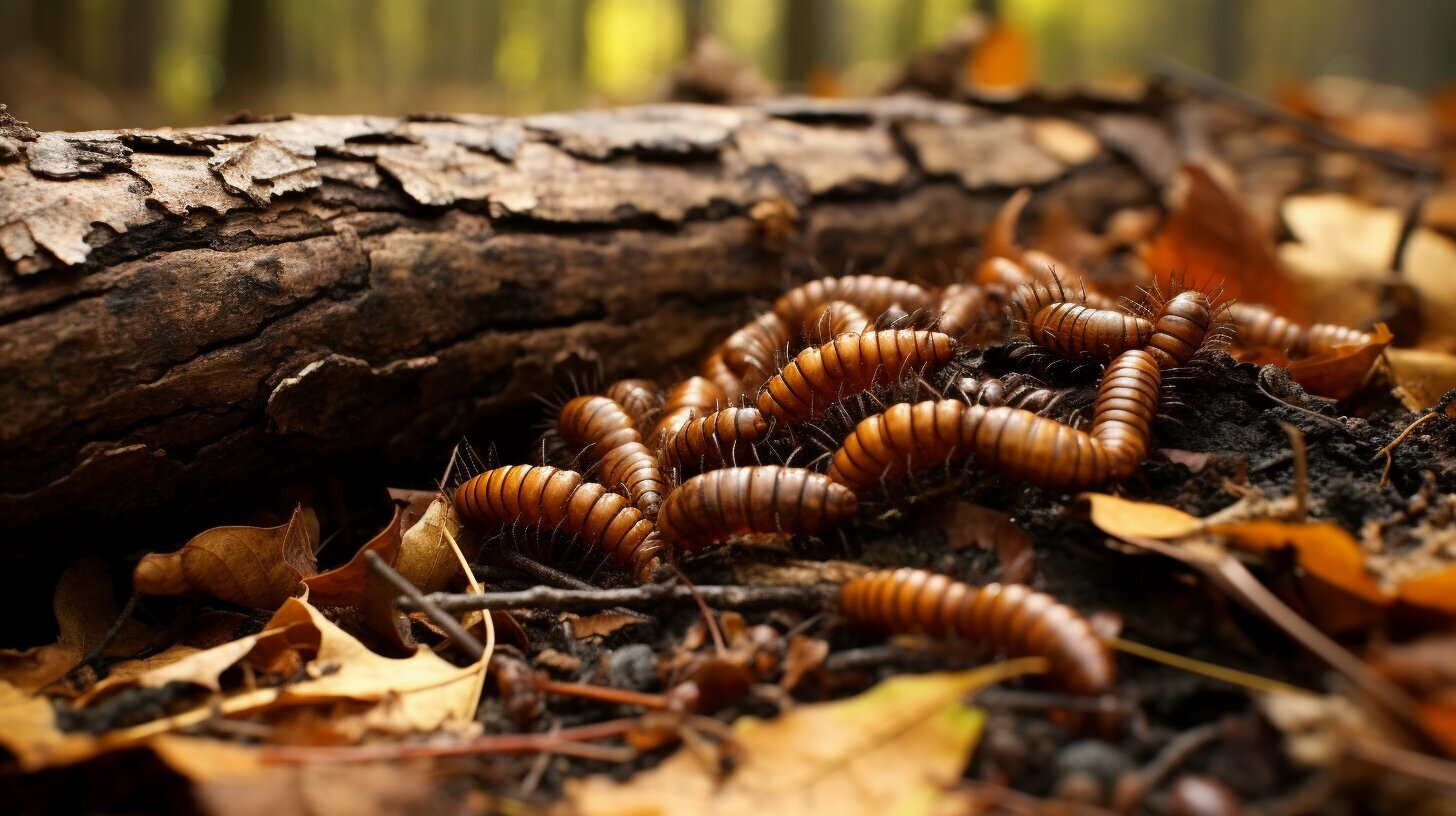Centipedes are fascinating creatures that have been around for millions of years, and they play a crucial role in the ecosystem as decomposers. But are centipedes really decomposers? In this article, we will explore the answer to this question and delve deeper into the ecological importance of centipedes in the decomposition process.
Key Takeaways:
- Centipedes are important decomposers in the ecosystem.
- They contribute to the breakdown of organic matter and nutrient cycling.
- Centipedes play a vital role in maintaining soil health and sustaining ecosystem balance.
Understanding Decomposers in the Ecosystem
Decomposition is a natural process that breaks down organic matter into simpler substances, releasing nutrients that support the growth of other organisms in the ecosystem. Many different types of organisms contribute to decomposition, including bacteria, fungi, insects, and other invertebrates.
Centipedes are one of the many decomposers in the ecosystem, playing a vital role in the breakdown of organic matter. As predators of other soil-dwelling invertebrates, centipedes help regulate soil populations and contribute to nutrient recycling.
Types of Decomposers
Decomposers can be classified into two broad categories: saprotrophs and detritivores. Saprotrophs, such as bacteria and fungi, decompose organic matter externally by secreting enzymes that break down the material into simpler compounds. Detritivores, such as centipedes and earthworms, consume organic matter and break it down internally through digestion.
Centipedes are an example of a detritivore and contribute to the breakdown of organic matter by consuming dead plant material, insects, and other invertebrates. Through digestion, centipedes release the nutrients contained in their prey back into the soil, making them available for other organisms.
Centipedes and Nutrient Recycling
Centipedes are important agents of nutrient cycling in the ecosystem. By breaking down organic matter, they release nutrients such as nitrogen, phosphorus, and potassium, which are essential for plant growth. These nutrients are then made available for other organisms in the ecosystem.
Additionally, centipedes play a role in the physical structuring of soil, aiding in nutrient exchange and water retention. Their burrowing activities help to create pathways for water and air movement, promoting healthy soil structure and plant growth.
Overall, centipedes are an important contributor to the ecosystem’s nutrient cycling system, aiding in the maintenance of soil health and supporting the growth of plants and other organisms.
Centipedes: Structure and Adaptations
Centipedes are fascinating creatures with unique features that make them adept at participating in the decomposition process. Their long, segmented bodies are equipped with numerous pairs of legs, ranging from 15 to 177 pairs, depending on the species. The legs are modified for different purposes, with the front legs adapted for catching and holding prey, and the back legs primarily used for locomotion.
Their mouthparts are specially adapted for piercing and sucking fluids from their prey, and their digestive systems are also adapted to break down and digest tough organic materials. In addition, centipedes have a unique ability to recycle nutrients back into the soil through their waste, contributing to nutrient cycling and enriching the soil.
Centipedes are also equipped with sensory organs that allow them to navigate through their environment and locate prey. Their antennae are sensitive to touch and vibrations, while their eyes can detect light and movement. These adaptations enable centipedes to efficiently locate and consume small insects, decomposing organic matter, and even other small vertebrates.
Centipedes and Organic Matter Breakdown
Centipedes are active participants in the breakdown of organic matter within ecosystems. They consume a variety of materials, including dead insects, plants, and even small vertebrates, accelerating the decomposition process.
Their feeding habits, combined with their unique digestive systems, allow them to break down and process organic matter efficiently. They have powerful mandibles that can crush and grind material, and enzymes in their gut that can break down complex molecules such as proteins and carbohydrates.
Centipedes can be found in almost all soil types, from forest floors to grasslands, and they play an integral role in the decomposition process. Their presence in the soil helps to break down and recycle nutrients, making them available to other organisms and supporting plant growth.
Research has shown that the presence of centipedes can significantly increase the rate of organic matter breakdown in soil. In one study, the removal of centipedes from soil resulted in a decrease in the rate of decomposition by more than 50%.
| Factors that affect centipedes’ contribution to organic matter breakdown | |
|---|---|
| 1. Soil moisture | Centipedes are more active and effective in moist soils. |
| 2. Temperature | Optimal temperature for centipedes is between 20-30°C. |
| 3. Soil acidity | Centipedes tend to prefer neutral to slightly acidic soils. |
It is important to note that while centipedes are significant contributors to organic matter breakdown, they are not the only decomposers in the ecosystem. A variety of other organisms, such as bacteria, fungi, and other invertebrates, also play important roles in the process of decomposition.
In the next section, we will explore centipedes’ important contribution to nutrient cycling in the ecosystem.
Centipedes as Agents of Nutrient Cycling
Centipedes play a vital role in nutrient cycling within ecosystems. As decomposers, they contribute to the release and redistribution of essential nutrients, enriching the soil and supporting plant growth.
Through their feeding activities, centipedes consume a variety of organic materials, including dead insects, plants, and even small vertebrates. As they digest these materials, they release essential nutrients, such as nitrogen, phosphorus, and potassium, back into the soil.
Furthermore, centipedes help to break down complex organic compounds, making them more readily available for uptake by plants. This enhances the fertility of the soil, promoting and sustaining overall ecosystem productivity.
Overall, it is clear that centipedes have a significant impact on nutrient cycling and soil health. Their role as agents of nutrient cycling underscores the importance of understanding and appreciating these fascinating creatures as essential components of nature’s cleanup crew.
Ecological Importance of Centipedes
Centipedes play a crucial role in maintaining soil health and supporting ecosystem balance. As decomposers, they facilitate the breakdown of organic matter, releasing essential nutrients into the soil and supporting plant growth. This makes them an important agent of nutrient cycling within ecosystems.
Additionally, centipedes help to control pest populations by preying on insects and small arthropods. They also serve as a food source for larger predators, such as birds and mammals, and contribute to the energy flow within food webs.
However, the ecological importance of centipedes extends beyond their role as decomposers and predators. These creatures are also indicators of soil health, as they are sensitive to changes in soil moisture and quality. Their presence or absence can serve as an early warning system for soil degradation or pollution, alerting us to potential environmental problems.
Overall, centipedes are an integral part of nature’s cleanup crew. Their contributions to nutrient cycling, pest control, and ecosystem balance make them important organisms to study and understand.
Centipedes in the Food Web
Centipedes play a crucial role in the food web as they are both primary and secondary consumers. As decomposers, they sit at the beginning of the food chain, consuming organic matter and breaking it down into simpler nutrients that are then consumed by other organisms. This puts them in the position of primary consumers.
However, centipedes are also known to be opportunistic carnivores and will actively hunt living prey. They are particularly fond of insects and other arthropods, making them an important predator in controlling pest populations. This places them in the secondary consumer category.
Centipedes’ dual position in the food web highlights their important role as both decomposers and predators. They contribute to energy flow by breaking down organic matter and by consuming other organisms, transferring energy from one level to the next. Their feeding habits have a significant impact on the stability and balance of ecosystems.
Conclusion
Centipedes are a vital part of nature’s cleanup crew, playing a critical role in the decomposition process and nutrient cycling within ecosystems. Through their feeding habits and unique adaptations, centipedes are able to break down organic matter and contribute to the release and redistribution of essential nutrients, enriching the soil and supporting plant growth.
Their impact extends beyond just decomposition, as centipedes also help control pest populations and maintain soil health, contributing to overall ecosystem balance. As we continue to understand and appreciate the importance of these small but mighty creatures, we can work towards protecting their habitats and ensuring their continued presence in our ecosystems.
FAQ
Q: Are centipedes decomposers?
A: Yes, centipedes are decomposers. They play an important role in breaking down organic matter in the ecosystem.
Q: What is the role of centipedes as decomposers?
A: Centipedes contribute to the decomposition process by consuming and digesting various organic materials, such as dead insects, plants, and small vertebrates.
Q: How do centipedes participate in the decomposition process?
A: Centipedes actively consume organic matter, accelerating the breakdown process and releasing essential nutrients back into the soil.
Q: What are the unique characteristics and adaptations of centipedes that enable them to be decomposers?
A: Centipedes have specialized feeding habits and digestive systems that allow them to efficiently break down and digest organic matter.
Q: How do centipedes contribute to nutrient recycling?
A: By consuming organic matter and releasing essential nutrients through their waste, centipedes enrich the soil and support plant growth.
Q: What is the ecological importance of centipedes as decomposers?
A: Centipedes play a crucial role in maintaining soil health, controlling pest populations, and sustaining overall ecosystem balance.
Q: Where do centipedes stand in the food web?
A: Centipedes are positioned as decomposers and primary or secondary consumers in the food web, contributing to the energy flow within ecosystems.

